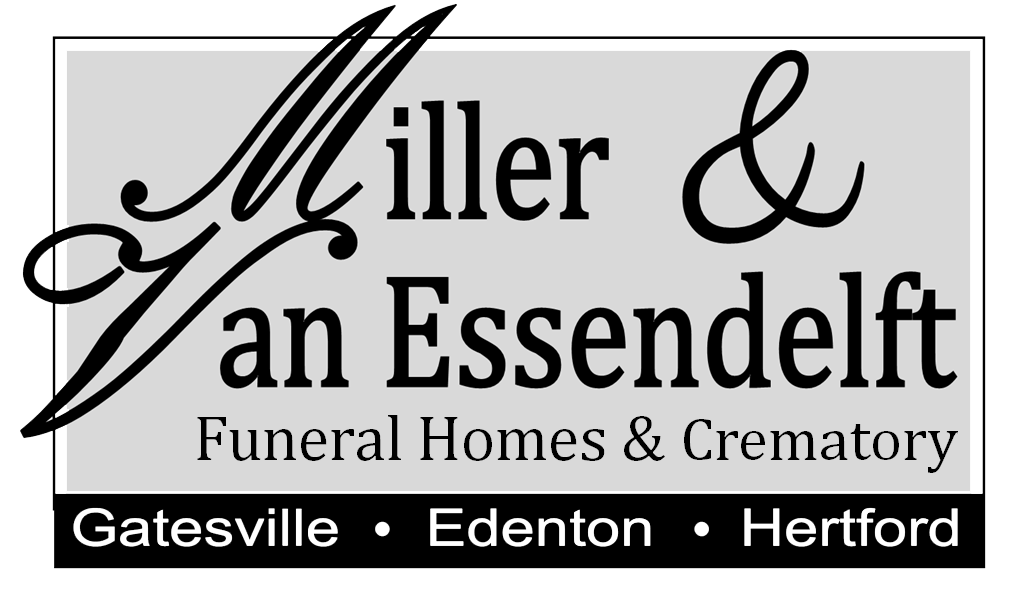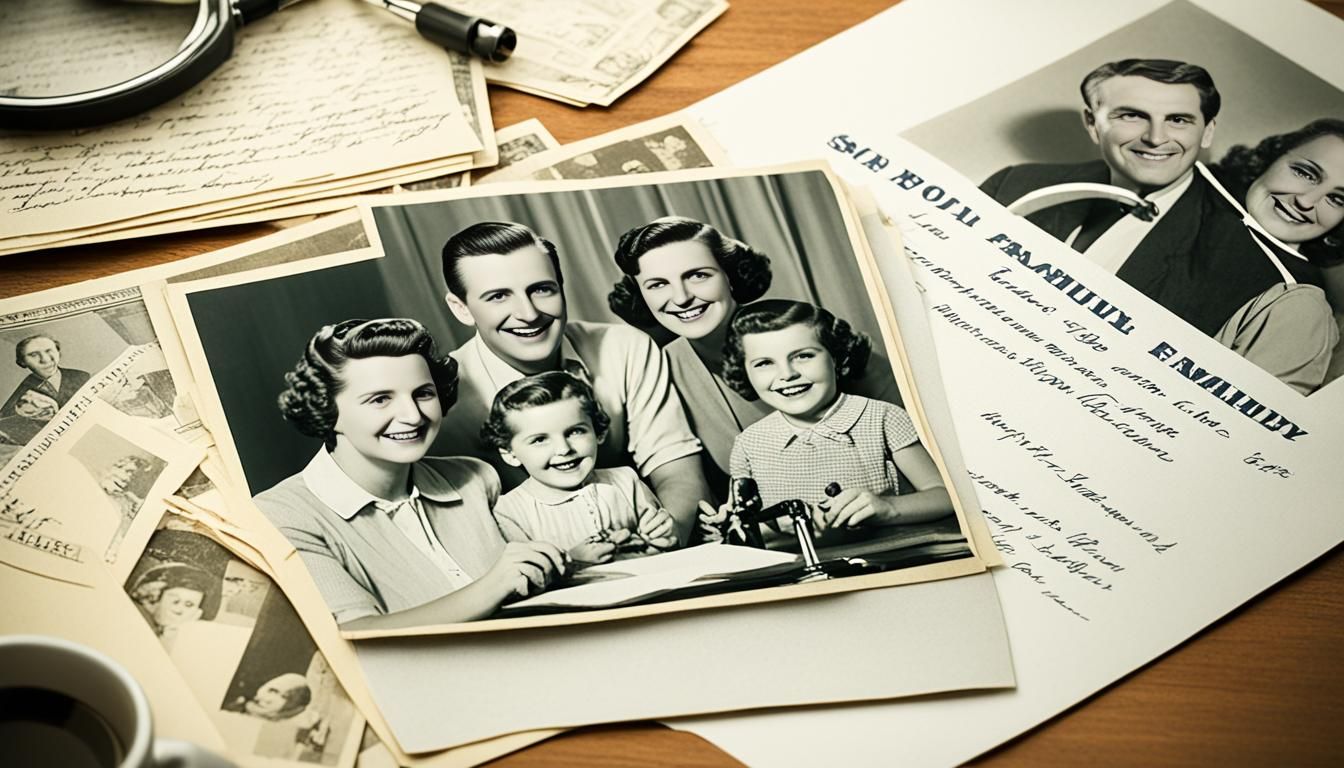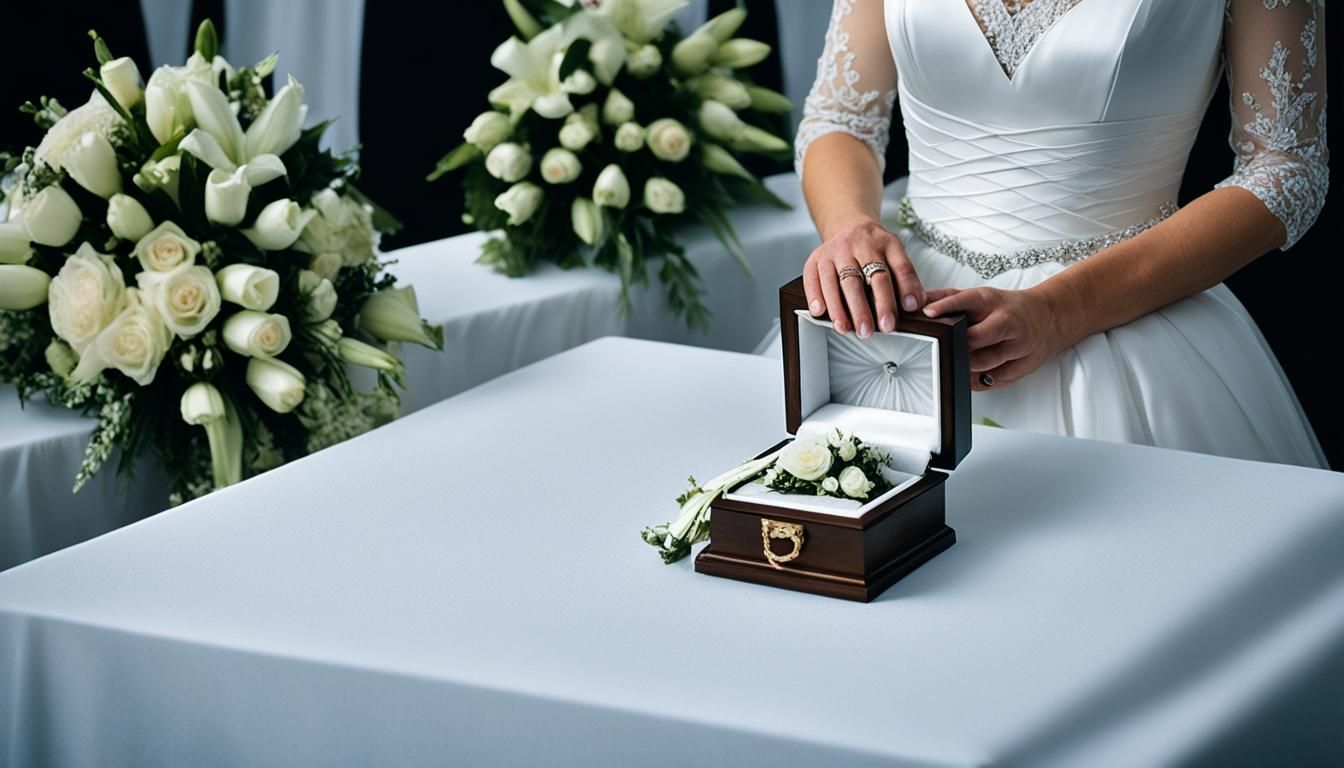Organizing End of Life Documents: Our Easy Steps.
Organizing End of Life Documents: Our Easy Steps.
Have you ever thought about how organizing end-of-life documents can ease your family's burden during hard times? At Miller Funeral Home in Edenton , North Carolina , we know being ready for the end of life is crucial. It's a caring act to make sure your health and personal wishes, along with your finances, are sorted out.
Our funeral home offers a supportive place to guide you through organizing important papers ahead of time. This not only makes sure your wishes are known but also brings comfort to you and your family when facing loss. Although our main service is to assist with funerals and support grieving families, we also help organize vital end-of-life documents. For detailed help, please visit us at www.millerfhc.com or give us a call at (252)-482-9993.
Key Takeaways
- Preparing end-of-life documents ensures your wishes are respected.
- Essential documents include a will, living trust, and advance directives.
- Using a will, you dictate the distribution of your estate.
- Durable power of attorney enables trusted individuals to make financial and health decisions on your behalf.
- Securely store these documents and share their location with a trusted person or lawyer.
- Regularly review and update documents to reflect life changes.
Taking the time now to plan carefully can prevent confusion later. It ensures your final wishes are respected just as you wanted.
Why Organizing End of Life Documents is Important
Organizing end-of-life documents is very important for you and your family's well-being. It ensures that your healthcare, financial wishes, and personal feelings are honored. This act shows your love and care for your family and friends. It makes tough decisions easier for them during emotional times.
Ensuring Peace of Mind and Honoring Wishes
Advance care planning helps prepare for future medical decisions. It's about making your healthcare wishes known to your loved ones. A living will, for example, gives clear instructions for your care if you can't decide for yourself. The NIA’s Ready, Set, Plan! A Weekly Guide to Advance Care Planning helps you plan over seven weeks.
To keep your documents current, review them annually or after big life changes. This ensures they always reflect your wishes and situation.
Relieving the Burden on Loved Ones
Organizing documents before death eases your loved ones' grief. Keeping vital documents in one place and letting a trusted person know where they are avoids confusion. Talking about your care wishes with a doctor, covered by Medicare, aligns your care with your end-of-life plans.
This preparation honors your final wishes and protects your loved ones from extra stress and legal issues.
Key Documents to Include
For a thorough end-of-life document guide, include these key documents:
- Will : Details how your estate should be handled and distributed.
- Durable Power of Attorney for Finances : Names someone to manage your finances if you can't.
- Living Trust : Manages your assets during life and distributes them after death.
- Advance Directives : Has a living will and a healthcare power of attorney.
- Do-Not-Resuscitate Order : Tells healthcare workers not to perform CPR if your heart stops.
- Life Insurance : Provides financial support for your beneficiaries and covers end-of-life costs.
- Funeral Arrangements : Planning ahead reduces stress for loved ones and ensures your wishes are met.
Over 60% of people in the US don't have an end-of-life plan. Only 25% have a Do-Not-Resuscitate order, and around 35% have a living will. Planning now eases your loved ones' burden and ensures your wishes are respected.
| Document Type | Percentage of Population |
|---|---|
| End-of-life plan | 40% |
| Living will | 35% |
| Revocable living trust | 5% |
| Last will and testament | 30% |
| Durable financial power of attorney | 20% |
| Durable medical power of attorney | 15% |
| Organ donor | 50% |
| Do-Not-Resuscitate order | 25% |
| Life insurance | 60% |
| Pre-planned funeral arrangements | 40% |
By organizing these documents, you make sure your personal, financial, and healthcare wishes are clear. This reduces stress for loved ones during hard times.
Steps to Organize End of Life Documents
Organizing end-of-life documents might seem hard at first, but it gets easier if you follow the right steps. Start by collecting all important personal, financial, and healthcare information. This should include things like legal names, social security numbers, and what you want done with your estate and money after you pass. It's also crucial to choose a durable power of attorney for both your finances and healthcare. This means picking a person you trust to make big decisions for you if you can't.
Next, it's important to make a will. This will tell people how you want your estate handled when you're gone. Also, get advance directives like a living will and power of attorney for health care ready. These will outline your medical treatment wishes if you're unable to speak for yourself. After you've got these documents ready, keep them somewhere safe but where they can be found easily. Letting a lawyer or a family member know where these documents are is a good idea.
Talk with your family and doctor to make your end-of-life care wishes clear. The NIA's 7-week email series, "Ready, Set, Plan!" can help with planning. Don't forget to check and update your documents every year or after big life changes. This keeps your plans up-to-date.
Follow this list to make your own personal planning guide:
- Collecting personal, financial, and healthcare details
- Choosing who will have the power of attorney for finances and healthcare
- Writing and keeping a will, living trust, and advance directives safe
- Checking your end-of-life documents every year
- Talking about what you want with your family and doctor
- Making decisions about organ donation and your funeral
- Telling someone trustworthy where your documents are
Remember, getting your end-of-life affairs in order is something you keep working on. By doing a bit at a time and asking for professional help, you can make sure everything important is covered. At Miller Funeral Home , we're here to help and guide you through this process step by step.
Conclusion
It's very important to manage your end-of-life documents well. This is not just to honor your health care wishes. It also brings peace to your family. At Miller Funeral Home , we help folks organize these crucial documents. They show you have thought about your final plans. This helps ensure your desires are followed and reduces stress for your loved ones.
Knowing about advance directives is key to your planning. This includes the Health Care Proxy form, Living Will, and Do Not Resuscitate Order (DNR) in New York. Each document has its own rules for when it becomes active. For example, a Living Will is used when someone can't make decisions due to a serious illness. A Health Care Proxy form needs two doctors to confirm the person can't make choices themselves.
Medical Orders for Life-Sustaining Treatment (MOLST) document your health care choices in detail. They include preferences from CPR to other life-support treatments. Along with making decisions about personal care and donation wishes, you can make a full plan. This helps in guiding those who might have to make decisions for you later on.
The COVID-19 pandemic showed us all how important it is to have these plans ready, regardless of our age. Rules for these documents change depending on where you live. That's why it's smart to look into the legal requirements for your state. Keep your documents updated to make sure they reflect your latest wishes. Miller Funeral Home is here to help you make these important plans. By taking steps today, you can avoid confusion later on. This ensures your legacy is remembered just as you want it to be.
FAQ
What are the first steps to organize end of life documents?
Start by gathering all your important personal, financial, and healthcare info. This should include things like legal names, social security numbers, and plans for handling estate and finances after you pass. Pick a trustworthy person for durable power of attorney for finances and healthcare. Also, make a living will to outline your medical care wishes in end-of-life situations.
Why is organizing end of life documents important?
It makes sure your wishes about healthcare, money, and personal feelings are followed. Preparing these documents gives you and your family peace of mind. It keeps them from having to make difficult choices during sad times, and guides them on how to handle your affairs when you're gone.
What key documents should I include in my end of life planning?
Important documents to have are a will, a living trust, durable powers of attorney for healthcare and finances, and advance directives. This includes a living will and health care proxy. They make your wishes official and enforceable by law.
Where should I store my end of life documents?
Keep these papers in a safe but reachable spot. Make sure someone you trust, like a lawyer or family member, knows where they are. This helps ensure they can be found when they're needed.
How often should I review and update my end of life documents?
It's a good idea to look over your documents every year or after big life events. This helps make sure they still match your current wishes and situation.
Who can help me with organizing my end of life documents?
Our team at Miller Funeral Home in Edenton , North Carolina is here to help. We can point you to resources and experts for making and organizing these papers. Feel free to reach out to us or check our website for more information.
What should I communicate to my doctor regarding my end of life documents?
Tell your doctor about your advance directives, especially during your yearly wellness check that Medicare covers. This makes sure your medical treatment matches your end-of-life plans.
Source Links
- https://www.nia.nih.gov/health/advance-care-planning/getting-your-affairs-order-checklist-documents-prepare-future
- https://www.blog.theuswillregistry.org/end-of-life-planning/
- https://seniorservicesofamerica.com/blog/10-end-of-life-documents-everyone-should-have/
- https://ag.ny.gov/sites/default/files/advancedirectives.pdf
- https://www.verywellhealth.com/advance-directives-documents-2615080










